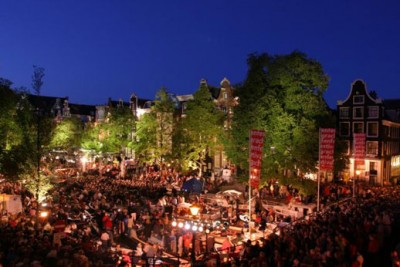Diversity, crowds key to evolving communities

Sure, our instincts tell us diversity and crowds lead to a greater collective intelligence, as witnessed by the reliable ‘Ask the Audience’ option on Who Wants to be a Millionaire?, but what about evidence?
That’s what Scott Page, professior of Complex Systems, Political Science, and Economics a the University of Michigan provides in The Difference: How the Power of Diversity Creates Better Groups, Firms, Schools, and Societies. An excerpt:
“For crowds to be wise, they must be able and diverse. One way to maintain this diversity is to mimic evolution. From evolution, we know that diversity combined with crude selective pressures can solve hard problems. In evolution, genetic mutation maintains diversity. Those mutations that increase fitness survive; those that do not fall by the wayside. The same effects occur within groups of people. Good attempts survive. Bad ones don’t. Experimentation can lead to a better “best” individual performer. More important, it can result in better collective performance. Studies show increasing diversity improves our collective performance at prediction and at problem solving.”
Assuming the required conditions:
1. The problem is difficult.
2. The problem solvers are smart (ie able to relate to the problem).
3. The population of problem solvers must be large (and the collections of problem solvers working togeth must contain more than a handful of problem solvers.)
…the author provides the following conclusions:
‘The Crowd Beats the Average’ Law: Given any collection of diverse predictive models, the collective prediction is more accurate than the average individual predictions. Collective Prediction Error [is less than] Average Individual Error.
Diversity Prediction Theorem: Increasing diversity improves prediction. Given a crowd of predictive models, Collective Error = Average Individual Error – Prediction Diversity. What the math says is the more prediction diversity, the smaller the collective error.
Diversity Trumps Homogeneity Theorem: If two collections of problem solvers contain problem solvers of equal indivudal ability, and if those problem solvers in the first collection are homogeneous and those in the second collection are diverse, then the collection of diverse problem solvers, on average, outperforms the collection of homogenous problem solvers.
Diversity Trumps Ability Theorem: Given a set of diverse problem solvers, a random collection outperforms a collection of the “best†individual problem solvers provided.
In other words, if you’re looking for solutions to realizing healthier, more vibrant, increasingly productive communities, you’re going to have to let go of the bureaucratic model and learn to honor the crowd if you want to uncover the hidden gold in your city.
Photo of a festival in Amsterdam, The Netherlands

Do you add
tags to your blog? It’s nearly impossible to read via rss. comes out as one big blog of text.